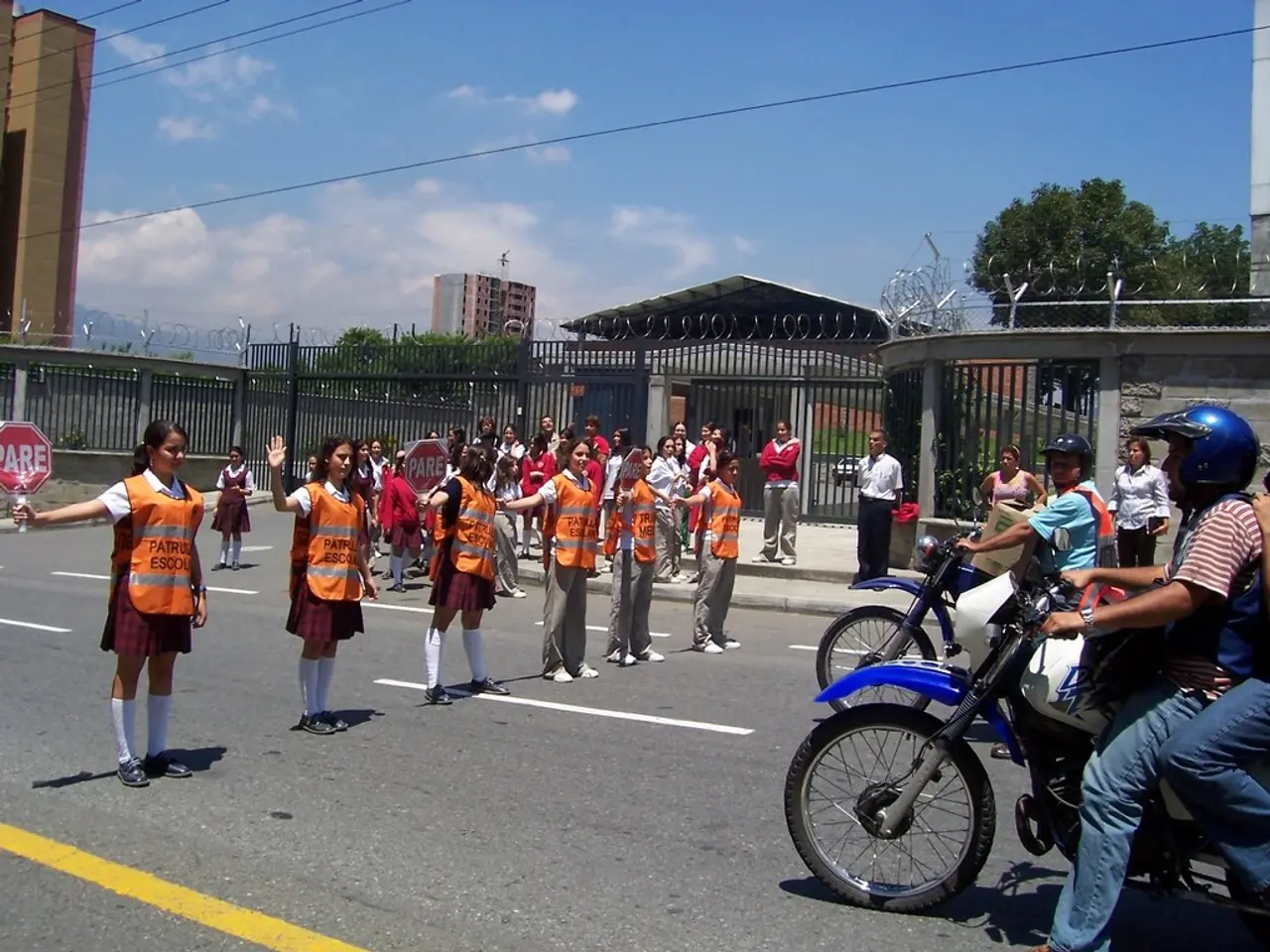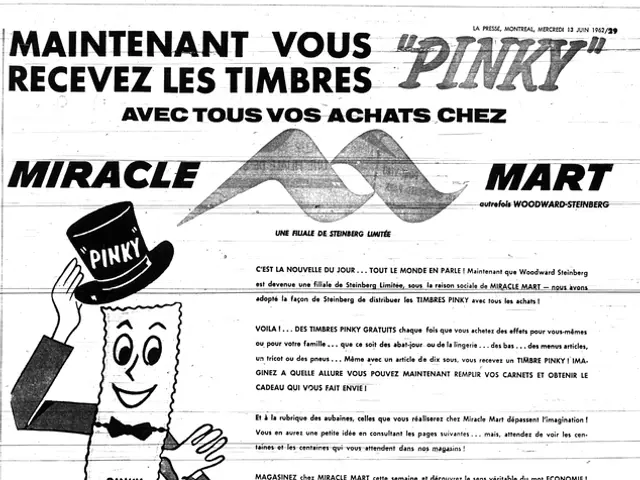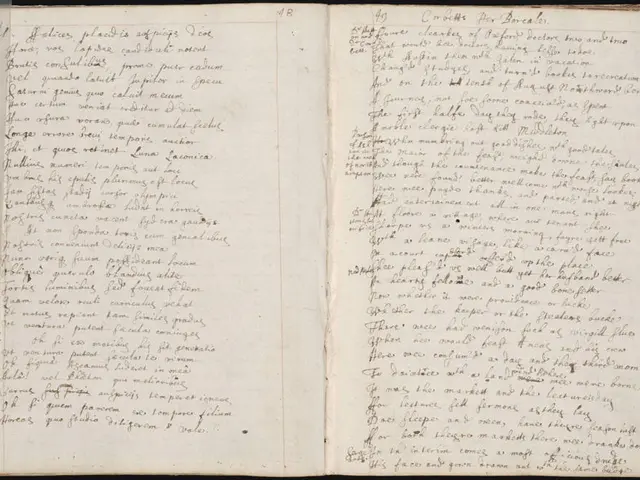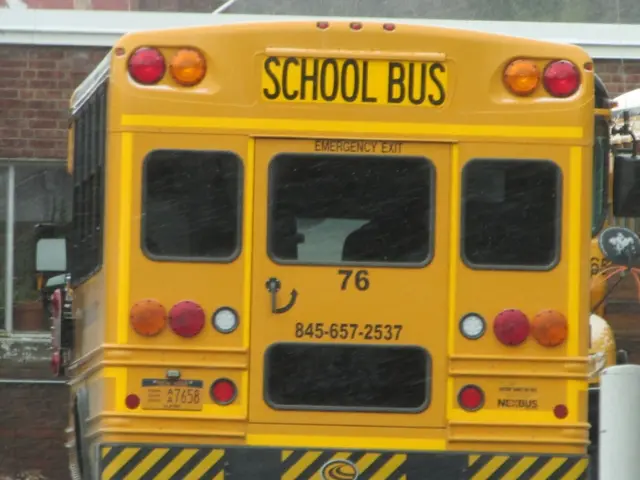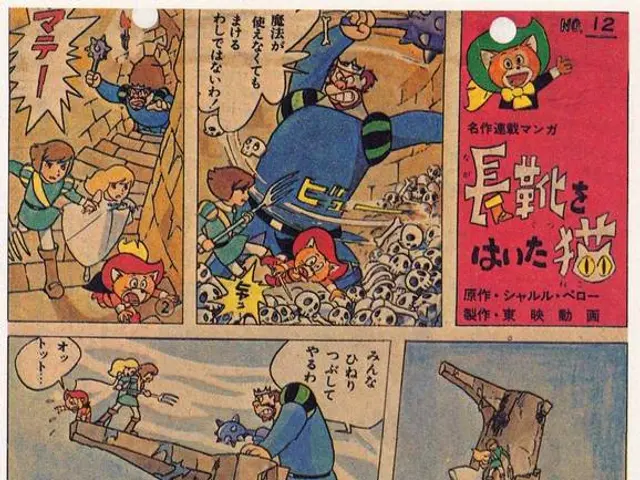Noblewoman Deaconie Exhibits an Interest in the City's Governance, Targeting Ruhrort
In the heart of North Rhine-Westphalia, the Duisburg-Ruhrort Police Station's Criminal Prevention and Victim Protection department is making a significant impact. This department, staffed by social workers from Grafschafter Diakonie, including Alina Glass (37) and Kathrin Elbers (35), is spearheading an initiative known as "Get Back on Track."
The initiative, aimed at children and young people aged 8 to 18 and their families who are at risk of criminality, offers a beacon of hope. One such beneficiary is Ahmed, a 12-year-old boy who has been receiving help from the department.
Ahmed, like many others, has faced challenges in his short life. His impulse control and violent behavior have been areas of concern. However, with the guidance of social worker Kathrin Elbers, he is making progress. In the past six weeks, Ahmed has managed to avoid any physical altercations, and the first improvements in his behavior have been noticed. He is learning to take the perspective of his counterpart, breathe through, and stay calmer.
The "Get Back on Track" initiative approaches its work systematically. It starts with a screening and selection of potential participants by the police. Based on their assessment, they develop a support program which can include outpatient family support, learning promotion, therapeutic support, finding a suitable sports club, school context support, social competence training, and violence prevention training.
The program provides significant relief for the children and their parents, offering help and a trusted person by their side. It aims to prevent the development of criminal behavior from becoming entrenched and causing harm to others and themselves. The initiative's goal is to provide early help to children and young people involved in crime.
The "Get Back on Track" initiative is not a new concept. The Organization for Security and Co-operation in Europe (OSCE) has recommended it as a best practice in the prevention of youth crime. Currently, there are 42 "Get Back on Track" locations throughout North Rhine-Westphalia.
Despite the widespread presence of the initiative, families often remain unaware of the available support options. If you or someone you know could benefit from the "Get Back on Track" program, it's important to note that participation is voluntary.
Recently, Kathrin Elbers picked up Ahmed from school with her therapy and pedagogy accompaniment dog Lio, and they spent the afternoon together. This personal touch is just one example of how the "Get Back on Track" initiative is making a difference in the lives of at-risk children and young people in North Rhine-Westphalia.
Sports can be an integral part of the "Get Back on Track" initiative's support program, offering children and young people a constructive outlet for their energy and helping them build discipline and teamwork skills.
The "Get Back on Track" initiative go beyond crime prevention, addressing the larger spectrum of education and self-development to ensure children have the tools they need to lead productive lives, including access to general news and resources that foster personal growth.
